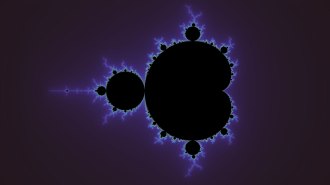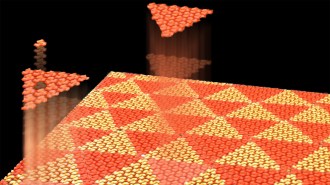For 9 years, computers at Central Missouri State University have been sifting through number after number, searching for a record-breaking prime. The effort finally paid off last month when one of the CMSU computers identified the 43rd Mersenne prime, setting the record for the largest known prime number.
This behemoth, 230402457 – 1, runs to a whopping 9,152,052 decimal digits, handily topping the previous champion, 225964951 – 1, which has 7,816,230 decimal digits. Like all primes, it’s evenly divisible only by itself and 1.
This particular prime number is written in the form a power of 2 less 1, or 2p – 1, where p is itself a prime.
In 1644, French monk and mathematician Marin Mersenne (1707–1783) proposed that numbers of the form 2p – 1 are primes only when p has certain values: 2, 3, 5, 7, 13, 17, 19, 31, 67, 127, and 257.
Mersenne proved to be wrong. Larger numbers of this form can be primes, though most of them are not. The search of ever-larger Mersenne primes, as these numbers came to be called, has steadily progressed to larger and larger values. The new champion is the 43rd Mersenne prime to be found.
The CMSU effort, led by Curtis Cooper and Steven Boone, is part of a large collaborative project known as the Great Internet Mersenne Prime Search (GIMPS). Relying on software developed by GIMPS founder George Woltman and grid-computing pioneer Scott Kurowski, tens of thousands of computers worldwide spend time when they would otherwise be idle systematically sifting through prime candidates.
The CMSU team was one of the first to sign up for GIMPs. Over the years, it gradually expanded its effort, from a handful at the beginning to more than 700 campus computers today. It currently ranks as the largest contributor to GIMPS and now has a new champion to its credit.
To date, GIMPS participants have identified nine Mersenne primes.
To encourage cooperative computing, the Electronic Frontier Foundation has offered a prize of $100,000 to the first individual or group that discovers a prime number with at least 10 million digits. The CMSU effort came tantalizingly close to winning the prize.
Maybe next time?






